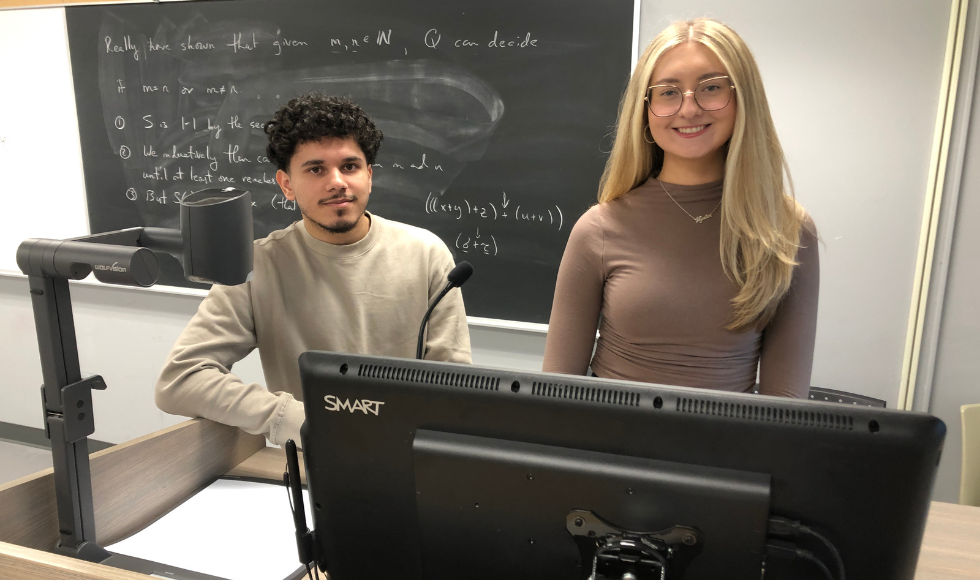A full circle moment for students helping with exam prep

Ahmed Raza, left, and Wynter Sutchy are part of the team offering tutoring sessions for Chemistry, Physics and Math and Stats.
Wynter Sutchy and Ahmed Raza are returning the favour.
They made it through their first-year exams with a big assist from the McMaster Science Society. The MSS runs review sessions for midterms and finals that are open and free to all students. The reviews are part of the long-running tutoring service offered by the MSS.
“I relied on the tutoring service back in my first year when Mac went online because of the pandemic,” says Raza, who found the transition to university and remote learning “very challenging.”
The tutoring service also made a difference for Sutchy.
“The tutoring and reviews were a huge help. When you’re in your first year, going up to a professor after class or dropping in during office hours can be intimidating,” she says.
“You might be afraid that you’ll be judged or misunderstood even though you’ll soon realize that’s not going to happen. So going to a review and talking with upper-year students who are experts in your course makes it a lot easier to start asking questions and getting help.”
Sutchy and Raza now run the review sessions. Sutchy, a third-year Biology Physiology student, is the MSS vice-president (Academic). Raza is the tutoring coordinator, finishing his fourth year in Life Sciences.
Review sessions are course-specific and run for around two hours. The first half is a review of key concepts with group problem-solving. The back half is open for Q&As and one-on-one tutoring.
Most first-year science courses — Physics, Chemistry, Stats and Math — are covered, along with some common second-year courses. Reviews for Biology courses are run in collaboration with the Biology Society.
Upward of 100 students pack classrooms for the evening reviews.
The MSS continues to offer online reviews to complement in-person sessions, recognizing that not everyone is on campus at night.
Students are also rewatching the online reviews until they’ve mastered the course material, Sutchy says.
Raza started tutoring in high school, when his calculus teacher him to help out as a peer tutor during lunch breaks. Now, as he coordinates the MSS tutoring service and works as a teaching assistant, Raza still makes time to volunteer as a high school tutor.
Why spend hundreds of hours tutoring while juggling a full course load?
“It’s very fulfilling,” Raza says. “I really enjoy tracking the progress of the students I tutor and showing them how much they’ve learned and how far they’ve come. Tracking their progress helps boost their confidence. Hopefully it motivates them to become a tutor. It’s truly rewarding to work with diverse groups of students and receive honest feedback about how to be an even better tutor and teacher.”
Along with going to review sessions, he’s a big fan of office hours.
“Ask your professors questions and listen to what other students are asking. Many times, professors will discuss key concepts that could appear on exams. Also reach out to your TAs. Ask how previous exams went to get some advice on course-specific studying.”
And once you’ve made it through the first year or two of exams, think about returning the favour and giving back like Raza and Sutchy.


